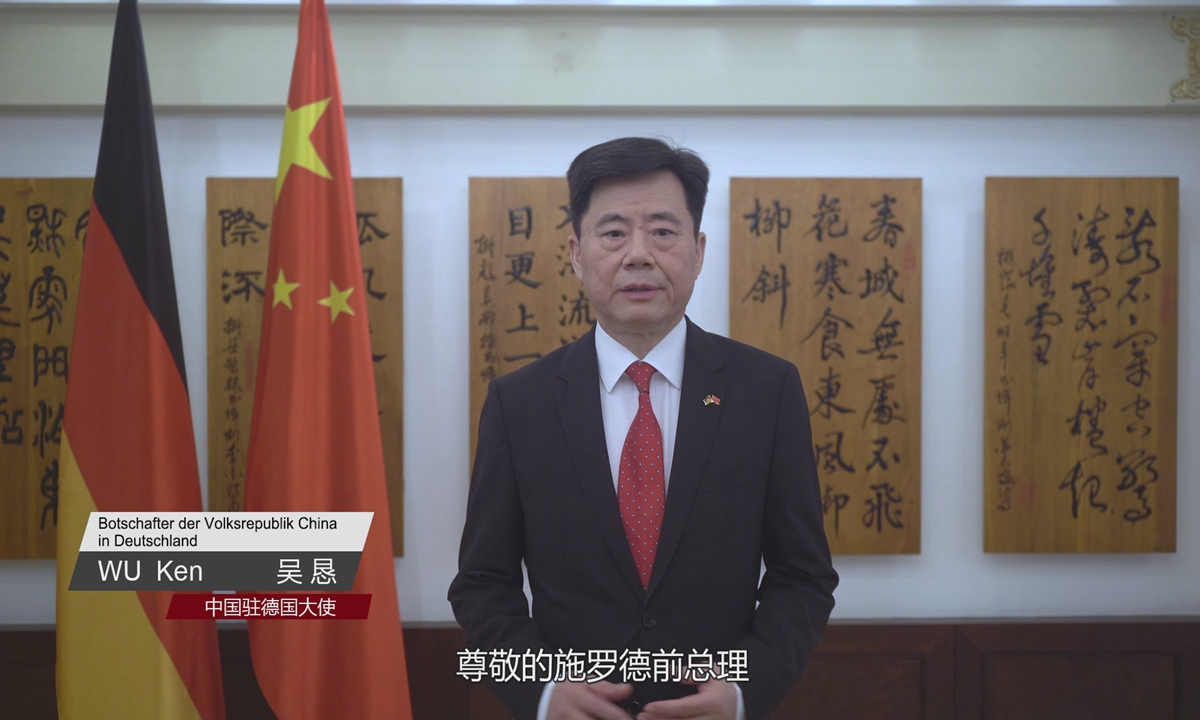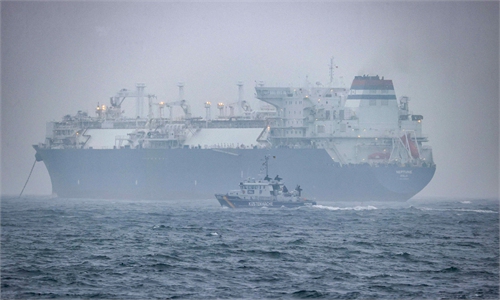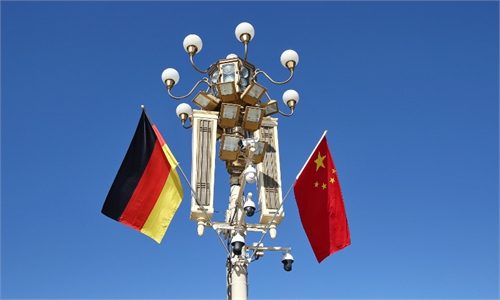Germany's ideology-driven China policy not in interests of either side: Chinese ambassador

Chinese Ambassador to Germany Wu Ken Photo: Chinese Embassy in Germany
Chinese Ambassador to Germany Wu Ken has warned that Germany's new strategy toward China, which is dominated by Cold War mentality and ideology, will affect the cooperation and common interests between the two countries. Germany's new strategy toward China reflects the redistribution of power within its government, said Chinese experts.
Plans for a tougher China strategy by Germany are "guided by ideology" and reflect a Cold War mentality that could put cooperation between the world's second- and fourth-largest economies at risk, the Chinese ambassador said during an interview with German media outlet Handelsblatt.
"What I read about in the media and know from many conversations is very disconcerting to me," Wu told Handelsblatt. "The paper gives the impression that it is guided primarily by ideology. It is not based on the common interests of Germany and China."
Germany is working on a new strategy that "takes a more sober look at its relations with China" and aims to reduce its dependence on Asia's economic superpower, according to Reuters.
The planned measures include requirements for German firms that are particularly exposed to China to share details on their business with the government and undergo regular stress tests, according to the ministry's "Internal Guidelines on China", which Reuters saw last month.
"As far as I know, the newly made China strategy exaggerates competition and confrontation between our two countries in a way that has nothing to do with reality. I'm also hearing that certain values and human rights are to be a prerequisite for cooperation in the future," Wu said, adding that if this happened, it would put obstacles in the way of cooperation between both countries.
The purpose of Germany's so-called new strategy toward China is, first, that the German government has a different understanding of the changing world situation and the changing role of China, so they believe that it is necessary to form and introduce a more systematic policy, Cui Hongjian, director of the Department of European Studies at the China Institute of International Studies, told the Global Times on Monday.
In addition, unlike the previous China policy, which was mainly handled by the Prime Minister's Office, the formulation of the dialogue strategy was actually led by the Ministry of Foreign Affairs and the Ministry of Economic Affairs, Cui said, adding that this essentially amounts to a redistribution of power within the German government.
The expert also mentioned that one of the uncertainties in Germany's relations with China lies in the instability of the policy toward China caused by its internal political struggle. Once Germany's political struggle intensifies, its China policy will be shaken.
"Moreover, according to the draft at least, Germany wants to coordinate its China policy more closely in the future with 'like-minded' allies such as the US. This suggests that the German government is forfeiting its independence and is instead following the US completely in matters of China policy," said Wu.
Wu added that the German government is ultimately contradicting itself by following this course, as it has always emphasized that it is not aiming for a confrontation between different camps. "To me, this smells suspiciously of a Cold War mentality," he said.
In this regard, experts said that this involves another factor of uncertainty in Germany's relations with China - the fact that the US is also using political struggles within the German government and public opinion to put pressure on Germany.
The future development of China-Germany relations depends on the extent to which Germany can clarify its own interests, instead of blindly following the US and viewing its relations with China from the perspective of the US, Cui remarked.
When referring to the so-called reduction of dependence on China in its new strategy toward China, Cui said that some industries in Germany, especially those with large market shares and high profits in China, such as automobiles and chemicals, will not reduce their investment in the Chinese market, and will even further increase their investment.
Recently, German media outlet Schwabische published an article titled "Nothing can be done without China", pointing out that China is one of the most important sources and suppliers of raw materials in the market for the German economy.
Complete "emancipation" from China is unrealistic, say most entrepreneurs. This applies above all to certain sectors such as mechanical engineering, electrical engineering, as well as the chemical and automotive industries, the report said.
Taking BASF as an example, China is the most important sales market worldwide. The world's largest chemical company is currently spending 10 billion euros to build a new production site in China. The German auto industry is also dependent on China - Daimler and BMW generate a third of their sales there, while Volkswagen generates even more at two-fifths.
It would be naive to believe that Western - including Germany - and Chinese economies could exist completely independently of one another, says DIHK General Manager Martin Wansleben. "There is no world without China, and there is no world without us being dependent on China and conversely, China is dependent on us," he added.



